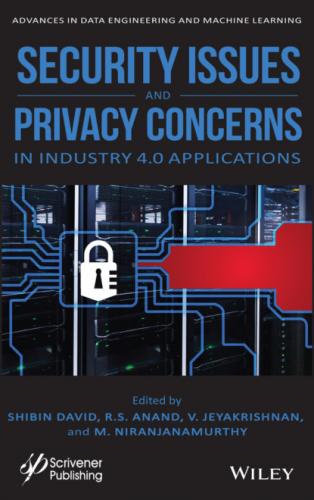155 152
156 153
157 154
158 155
159 156
160 157
161 158
162 159
163 160
164 161
165 162
166 163
167 164
168 165
169 166
170 167
171 168
172 169
173 170
174 171
175 172
176 173
177 174
178 175
179 176
180 177
181 178
182 179
183 180
184 181
185 182
186 183
187 184
188 185
189 186
190 187
191 188
192 189
193 190
194 191
195 192
196 193
197 194
198 195
199 196
200 197
201 198
202 199
203 200
204 201
205 202
206 203
207 204
208 205
209 207
210 208
211 209
212 210
213 211
214 212
215 213
216 214
217 215
218 216
219 217
220 218
221 219
222 220
223 221
224 222
225 223
226 224
227 225
228 226
229 227
230 229
231 230
232 231
233 232
234 233
235 234
236 235
237 236
238 237
239 238
240 239
241 240
242 241
243 242
244 243
245 244
246 245
247 246
248 247
249 249
250 250
251 251
252 252
253 253
254 254
Scrivener Publishing 100 Cummings Center, Suite 541J Beverly, MA 01915-6106
Advances in Data Engineering and Machine Learning
Series Editor: M. Niranjanamurthy, PhD, Juanying XIE, PhD, and Ramiz Aliguliyev, PhD
Scope: Data engineering is the aspect of data science that focuses on practical applications of data collection and analysis. For all the work that data scientists do to answer questions using large sets of information, there have to be mechanisms for collecting and validating that information. Data engineers are responsible for finding trends in data sets and developing algorithms to help make raw data more useful to the enterprise.
It is important to have business goals in line when working with data, especially for companies that handle large and complex datasets and databases. Data Engineering Contains DevOps, Data Science, and Machine Learning Engineering. DevOps (development and operations) is an enterprise software development phrase used to mean a type of agile relationship between development and IT operations. The goal of DevOps is to change and improve the relationship by advocating better communication and collaboration between these two business units. Data science is the study of data. It involves developing methods of recording, storing, and analyzing data to effectively extract useful information. The goal of data science is to gain insights and knowledge from any type of data — both structured and unstructured.
Machine learning engineers are sophisticated programmers who develop machines and systems that can learn and apply knowledge without specific direction. Machine learning engineering is the process of using software engineering principles, and analytical and data science knowledge, and combining both of those in order to take an ML model that’s created and making it available for use by the product or the consumers. “Advances in Data Engineering and Machine Learning Engineering” will reach a wide audience including data scientists, engineers, industry, researchers and students working in the field of Data Engineering and Machine Learning Engineering.
Publishers at Scrivener Martin Scrivener ([email protected]) Phillip Carmical ([email protected])
